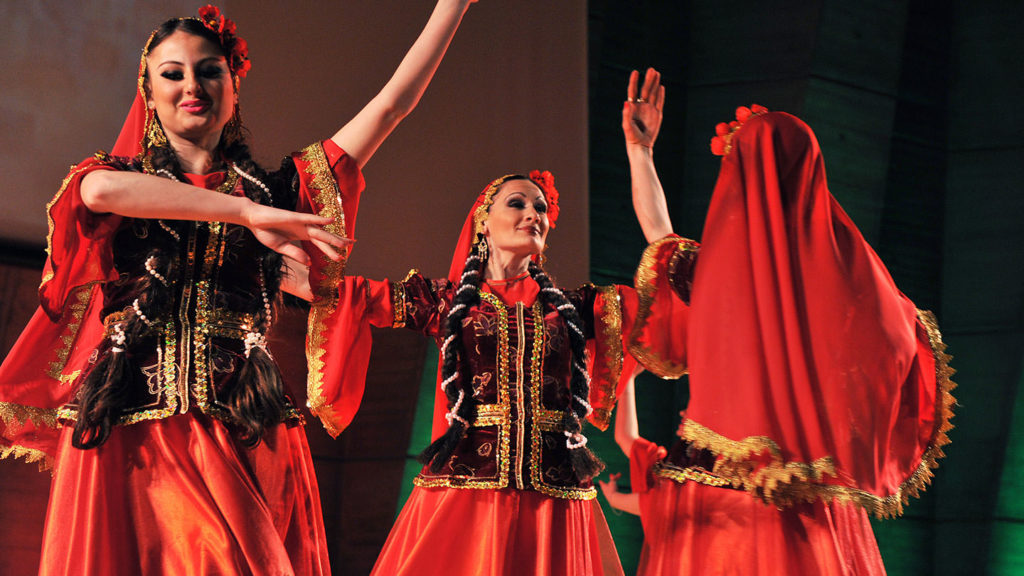Recently updated on June 12th, 2020 at 07:40 pm
Larger than life, loving and generous, the Armenians are extremely proud of their Armenian traditions and customs. No need to ask them twice to share these either. The locals like nothing better than to open their hearts and their homes to strangers who are welcomed as family with a rousing bari galust! (‘welcome’).


It should, therefore, come as no surprise that generosity and open-heartedness are the cornerstones of Armenian traditions and customs. The fun-loving Armenians love a celebration and everyone’s invited. So, if your visit to Armenia coincides with one of their traditional festivals, that includes you.
7 Armenian traditions and customs you have to experience
Put on your dancing shoes, prepare your taste buds and keep an open mind. Here’s what you can expect if you find yourself in the midst of our favourite 7 Armenian traditions and customs:
1. Burn Baby, burn…


The Armenians believe good fortune in love, life and the prospect of a fertile harvest burn in the flames of fire. As such, building bonfires is central to the firiest of Armenian traditions – Trndez.
The blaze is said to symbolise light, warmth, joy and the swift dispatching of winter, but more than this it has the power to make predictions. The fire predicts whether a couple is going to marry or have a child. It breaks the frost of winter and makes the fields fertile. It heals the sick and inspires hens to lay more eggs. At Trndez, fire pretty much has the power to do anything.
Most notably, however, it is at this fiery festival that you’ll see couples jump over the flames to determine whether or not they will get married. Newlyweds (fully clad in their wedding attire) jump over bonfires to determine whether or not they’ll have a child. In both cases, the Armenians consider it a sign of good fortune if the flames touch them.
RELATED CONTENT: Everything you need to know about travelling to Armenia
2. Salty biscuits
Step aside St. Valentine. St. Sargis (Surb Sarkis) is the Armenian patron saint of love and youth. And in his name, the key to the Armenian heart lies in a salty biscuit.
On the eve of 14 February, Armenian singletons eat a specially prepared salty biscuit (known as aghiblit) and abstain from drinking water.
Legend has it that they will dream of their future partner bringing them a cup of water to ease their thirst. And if not, better luck next year.
3. Palm Sunday Tsaghkazard
Expect a riot of colours on the streets of Armenia on Palm Sunday (Tsaghkazard). Literally translated as “decorated with flowers”, Tsaghkazard sees churches across the country flamboyantly decorated with fresh flowers and willow branches.
Being the first nation to adopt Christianity as a state religion, the Armenians are deeply religious. Celebrations such as Tsaghkazard, Easter and the Ascension are therefore key dates on the Armenian calendar. But the locals are also a superstitious bunch and they believe wholeheartedly that certain Armenian traditions will bring them good luck.
At Tsaghkazard, the Armenian Christians believe that blessed willow branches will bring happiness and good fortune to their lives and homes. These, along with wheat spikes symbolising a good harvest, are kept in the home for a full year between Palm Sundays. On this special day, it’s out with the old and in with the new – the dregs of yesteryear literally thrown out on a bonfire to burn.
4. Getting drenched at Vardavar


Water scarce Armenia allows itself just one day a year to waste this precious resource. But only because of its power to cleanse inside and out. Vardavar dates back to pagan times and is an enduring nod to Astghik, the goddess of water and purity.
Expect to get properly drenched on this day in July. The Armenians think nothing of pouring water over anyone who doesn’t look thrilled to be alive. And they’re undiscerning about it too. You could be a complete stranger only to find your unsuspecting self liberally doused with a bucket of water thrown from the balcony above.
5. The Blessing of the Grapes


Perhaps blessed grapes are tastier. Perhaps it has simply become common practice not to sample their juicy goodness before a holy hand has touched them. Either way, local Armenians eagerly await the annual grape blessing, having abstained from sampling the fruits of their grape harvest until mid-August when the Armenian Church celebrates this ritual. The locals start to make their delicious Armenian wines only once the grapes have been blessed.
6. Family is important to the Armenians


Families, and extended ones at that, are the cornerstone of Armenian life. You don’t even need to be family, to be welcomed like family. The Armenians are warm, traditional and extremely hospitable.
At the heart of family are Armenian children – the ‘light’ of the home. As a largely patriarchal society, Armenians particularly revere boys and the first male child is therefore given the honour of being named after his fraternal grandfather.
Finally, one of the most peculiar of Armenian traditions surrounding family is to keep the new-born sequestered from everyone except only the closest relatives for 40 days after their birth.
7. Any excuse for a dance


The lively Armenians are light on their feet and love nothing more than to express their feelings through dance. Weddings, birthdays, the harvest – Armenians certainly don’t need any excuse to put their best foot forward and celebrate life on their toes.
The tunes come out once the feasting is done and everyone is expected to give it a good go. You may just be lucky enough to witness a Kochari performance if your visit coincides with one of the most popular festive celebrations. Inscribed by UNESCO as an Intangible Cultural Heritage, Kochari looks not unlike a herd of goats leaping into the air.
Have you witnessed any distinctive Armenian traditions and customs? Are you an admirer of Armenian culture? Share your favourite memories with your fellow travellers in our comments below…